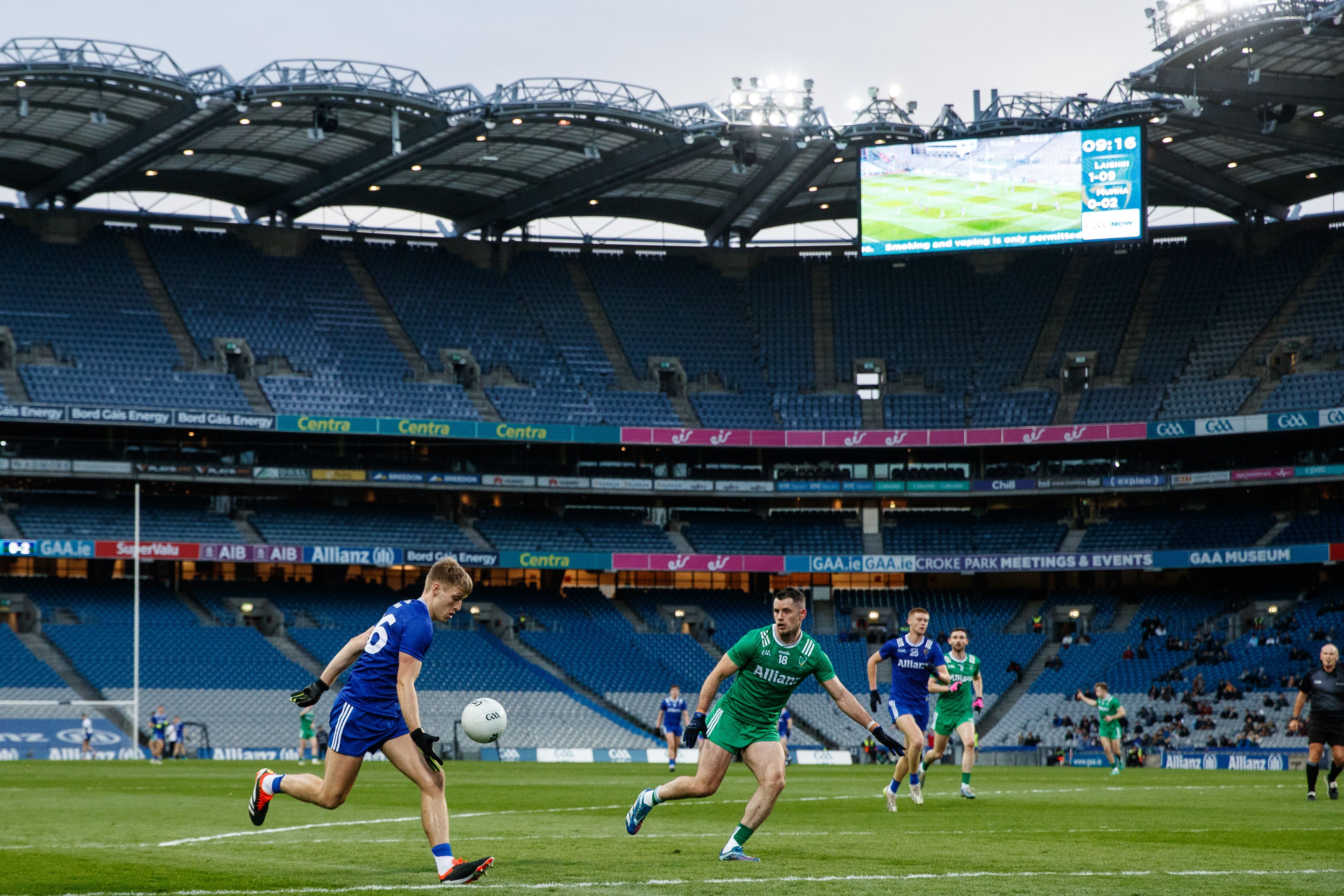Ulster 2-23 (31); Connacht 4-15 (31)
(Ulster win 2-1 on penalties)
It was a resurrected Railway Cup series brought back to life as a guinea pig to see if it could brighten up the current state of GAA football over a two-day experiment.
The jury was out after the semi-finals at Croke Park on Friday evening when Connacht walloped Leinster and Ulster proved too strong for a Kerry-depleted Munster.
By late Saturday evening, after firstly Leinster had won a cracker against Munster in the losers’ play off and Ulster and Connacht fought out an exciting draw which was ultimately decided on penalties which the Northern province won by 2-1 after each had taken six spot kicks.
While that was a gripping end to the whole experiment, it was nothing compared to the exhilarating score-taking and competitive bite all over the pitch during that game which strongly suggested that the Football Review Committee (FRC) under Jim Gavin may indeed have come up with a formula to revive football from the boring, defensive sporting spectacle it has become.
Indeed the improvement by players from Friday to the Saturday as they became more familiar with the rules and how to apply them was marked and led to some who initially had criticized it to back it at the end of the four games.
Players, managers and refereeing officials were all very positive about the overall improvement these new rules could bring to the game with the mandatory three players from each team staying in one half seen as a way of preventing clogged defenses which has resulted in few goalmouth spills.
In this final on Friday night, we got six goals and a host of high ball contests on the edge of the square, which many feel is a throwback to the traditional game where man to man marking was a feature of every encounter.
Also threatening the blanket defense was the introduction of a two-point score from outside the new 40m arc - something that improved foot kicking while also forcing defenders to leave the D in an attempt to block down such shots.
The exciting denouement to the provincial final was set up by attempts to go for such scores. In the first instance with Ulster trailing by two points, Rian O’Neill elected to shoot from outside the 40m zone. In this instance his shot hadn’t the legs to go all the way but it landed in the square where Down sub Odhran Murdock flicked home a goal (worth four points) to put his side two up with less than a minute remaining.
However Connacht weren’t ready to bow the knee and when Johnny Heaney got possession he struck a two-pointer to level the game, forcing penalties which was ultimately won when Murdock took the sixth kick and slotted home for his team to win by 2-1 from the spot
Connacht Manager Padraic Joyce of Galway believed that maybe "four or five" of the seven proposed rules were worth running with. "It definitely makes the game faster. The games were very enjoyable. I think the three up top is a good one. The tap and go from the free-kicks speeds the game up as well. Maybe the kick-out one might need to be looked at,” he suggested on RTE television afterwards,.
His Leinster counterpart Dessie Dolan reported from his dressing-room that the panel had "overall, been very positive about the rule changes. There is a frustration with the game as it is. It's very static. It was a lot more open out there. A couple of things. The ball being penalized 50 metres for dissent is quite severe. The inside mark is hard to execute. But I think the three up top has given structure to the game. It is a little bit easier to break it down."
All Ireland winning Armagh skipper Aidan Forker was unhappy with the fact that goalkeepers' kick-outs had to travel outside of the new 40 metre arc.
"There's probably a couple there you would tweak. It adds more contest out the middle, but I'm not 100pc sure if it adds to the skill of the game and that's sort of what we're after, is it not?"
He was one voice not in favor of the four-point goal. "I feel like the scores may be a bit heavily weighted to the goals. I think if you concede a point, it doesn't feel that heavy on you. If you concede a goal, the four points feels quite heavy. For me a 3, 2, 1 [three for a goal, two outside the arc, one for a point], would be nice.
"Four points for a goal, it can knock you. I think teams will set up to not concede goals, because if you concede two or three goals in a game, you're going to struggle to win the game. Managers will be quite wary of conceding goals, I think you'll be coached very much to try and negate goal chances.
"If you look at the stats, that 40-metres arc is probably a 50pc zone at best. So you may concede four or five of them, I don't think that's as worrying as conceding a goal,” he explained.






